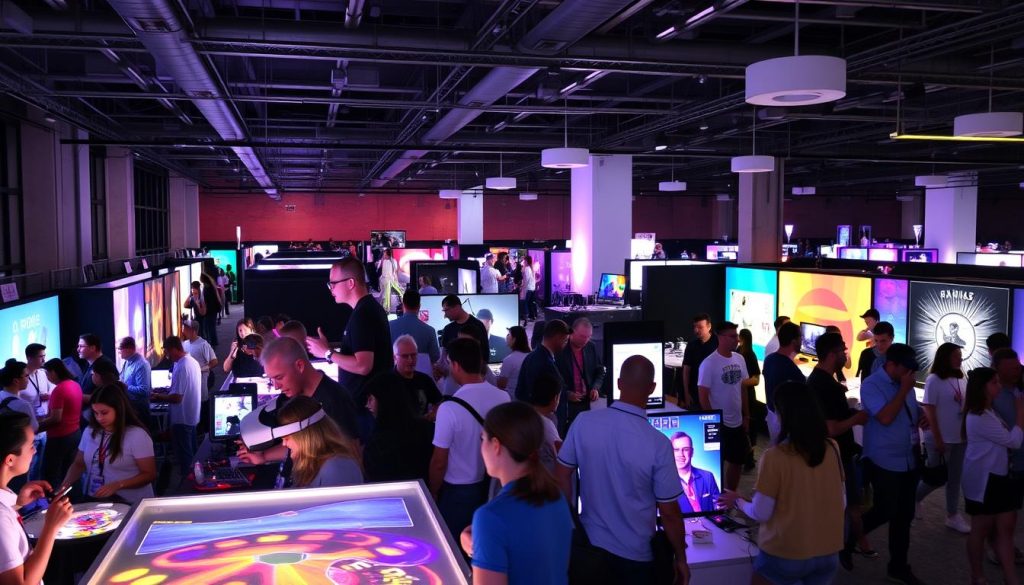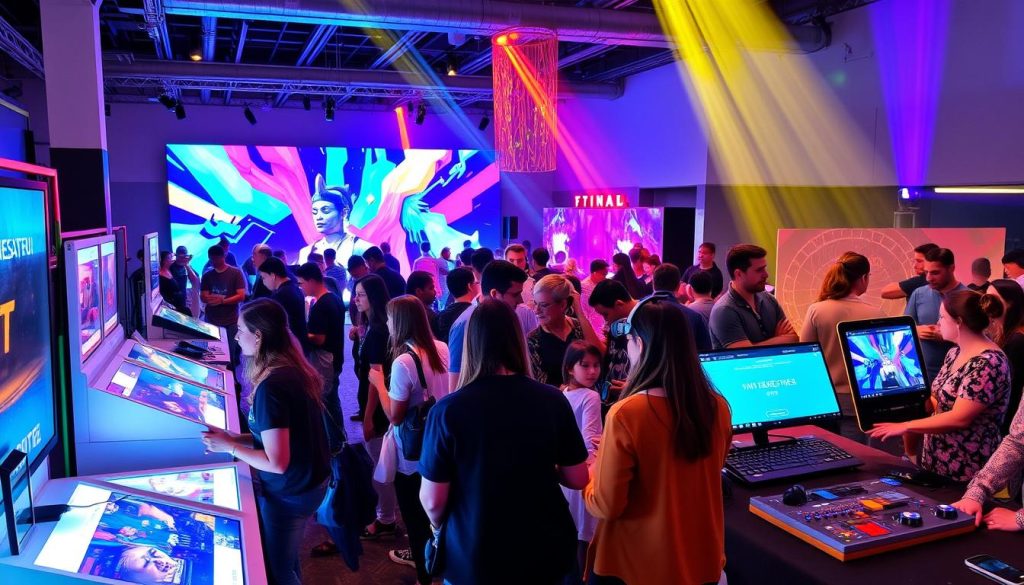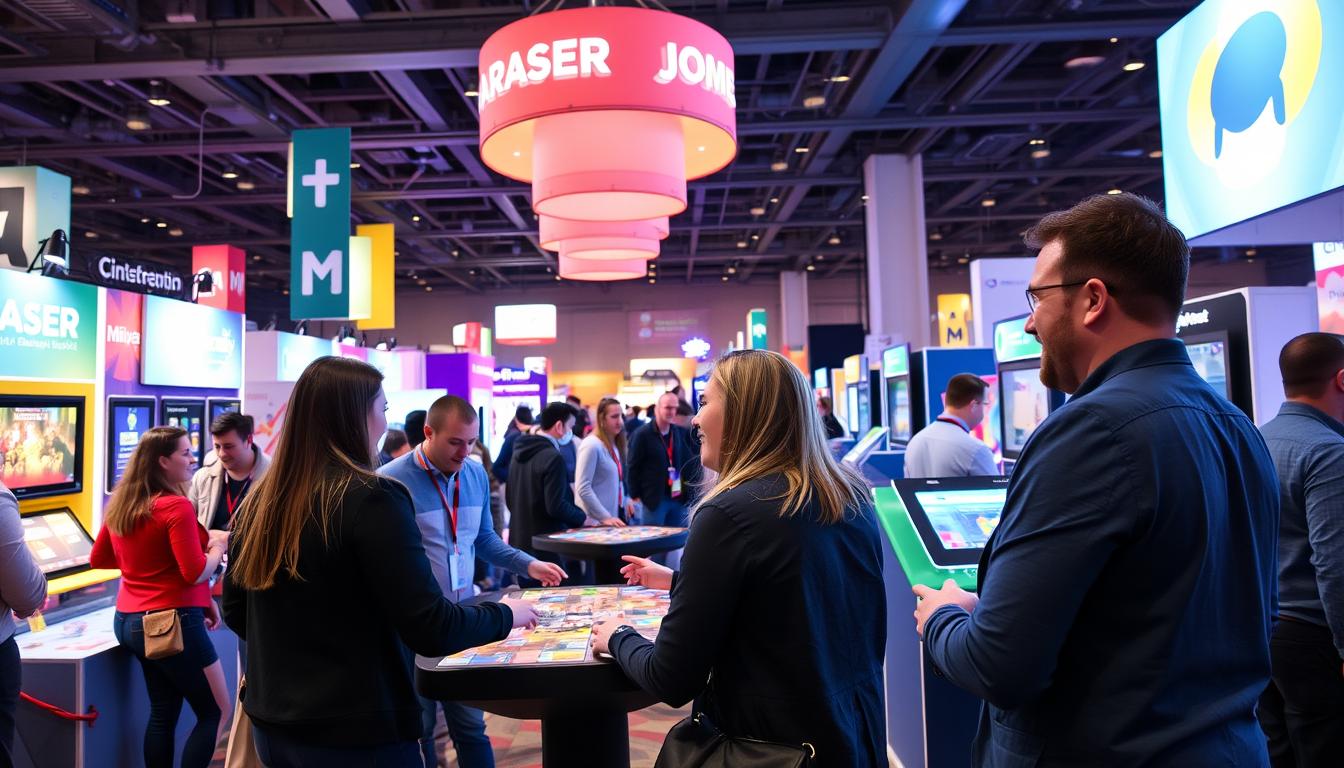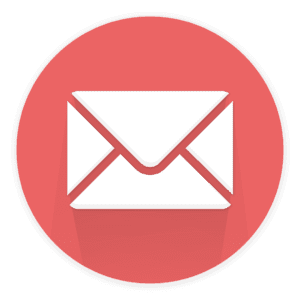Event managers are constantly seeking fresh ways to capture quality leads and boost engagement. In today’s digital landscape, innovative lead generation techniques have become essential for event marketing success. One trend that’s gaining traction is the use of games and interactive experiences to collect valuable attendee information.
As event marketing strategies evolve, professionals are discovering the power of gamification in lead generation. This approach not only makes data collection more enjoyable for participants but also yields higher-quality leads for businesses. By turning to games for lead generation, event managers are creating memorable experiences that attendees are eager to engage with.
Key Takeaways
- Games enhance lead generation at events
- Interactive experiences boost attendee engagement
- Gamification yields higher-quality leads
- Event marketing strategies are evolving with technology
- Lead generation techniques now focus on participant enjoyment
- Memorable experiences drive better data collection
Why Event Managers Are Turning to Games for Lead Generation
Event managers are discovering the power of gamification in events to boost lead generation. This trend is taking the industry by storm, transforming how we engage attendees and collect valuable data. Let’s dive into why games are becoming a go-to strategy for event pros.
The Psychology Behind Gamified Lead Generation
Games tap into our natural desire for fun and competition. By creating engaging event activities, managers can capture attention and motivate participation. Attendees are more likely to share information when they’re having a good time, making gamification a smart choice for lead collection.
Success Metrics from Gaming-Based Lead Collection
The numbers don’t lie. Event managers using gamification see impressive results. Businesses leveraging interactive experiences report higher engagement rates and better-quality leads. One study found a 34% increase in lead conversion when incorporating games into events.
Types of Games That Drive Engagement
Not all games are created equal when it comes to lead generation. Some top performers include:
- Digital scavenger hunts
- Trivia challenges
- Virtual reality experiences
- Social media contests
These interactive experiences encourage attendees to participate actively, providing valuable data points for event managers. By choosing the right mix of games, event planners can create a dynamic environment that attendees love and generates high-quality leads.
Understanding the Evolution of Event Marketing Lead Generation
Event marketing lead generation has come a long way. In the past, collecting business cards was the go-to method. Today, we see a shift towards digital solutions that boost brand awareness and lead quality.
The rise of social media changed the game. Platforms like LinkedIn and Twitter became powerful tools for Event Marketing Strategies. They allow organizers to engage attendees before, during, and after events.
Mobile apps revolutionized data collection at events. Attendees can now easily share their info, while organizers gain valuable insights. This tech-driven approach has become a cornerstone of modern Lead Generation Techniques.
“The future of event marketing is data-driven and personalized. We’re moving from one-size-fits-all to tailored experiences that resonate with each attendee.”
Virtual and hybrid events emerged as game-changers. They expanded reach and offered new ways to capture leads. These formats proved crucial for maintaining Brand Awareness during global disruptions.
AI and machine learning are the latest additions to the toolkit. They help predict attendee preferences and optimize lead scoring. This level of personalization was unthinkable just a decade ago.
As we look to the future, one thing is clear: successful event marketers must adapt to new technologies and lead generation strategies to stay ahead in a competitive landscape.
| Era | Lead Generation Method | Key Advantage |
|---|---|---|
| Pre-2000s | Business Card Collection | Face-to-face Interaction |
| 2000-2010 | Email Marketing | Wide Reach |
| 2010-2020 | Social Media Engagement | Real-time Interaction |
| 2020-Present | AI-Powered Analytics | Personalized Targeting |
Essential Tools and Technologies for Event Lead Capture
Event managers need powerful tools to capture leads effectively. Modern technologies offer innovative solutions for data collection and attendee participation. Let’s explore the essential tools that can transform your event lead generation strategy.
Digital Lead Capture Solutions
Digital solutions streamline lead capture at events. QR code scanners and RFID technology enable quick information exchange. These tools create interactive experiences, allowing attendees to share contact details effortlessly. By integrating GoHighLevel for contact management, you can efficiently organize and follow up with leads post-event.
Mobile Event Apps for Data Collection
Mobile apps are game-changers for event data collection. They offer features like digital business card exchanges and session check-ins. These apps enhance attendee participation by providing personalized schedules and networking opportunities. The data gathered through these apps gives valuable insights into attendee behavior and preferences.
Integration with CRM Systems
Connecting lead capture tools with CRM systems is crucial. This integration ensures seamless data flow from the event to your sales pipeline. CRM integration allows for real-time lead scoring and segmentation. By creating contacts efficiently in GoHighLevel, you can kickstart nurturing campaigns immediately after the event.
| Tool | Key Feature | Benefit |
|---|---|---|
| QR Scanners | Instant Info Capture | Speeds Up Registration |
| Mobile Apps | Engagement Tracking | Personalized Follow-ups |
| CRM Integration | Automated Lead Routing | Improved Sales Efficiency |
By leveraging these tools, event managers can create a robust lead capture system. This approach not only enhances data collection but also improves the overall attendee experience. The key is to choose tools that align with your event goals and integrate smoothly with your existing systems.
Creating Interactive Experiences That Convert

Event managers are revolutionizing lead generation through engaging event activities. By crafting interactive experiences, they capture attendee interest and boost conversion rates. These immersive experiences go beyond traditional networking, creating lasting impressions that translate into valuable leads.
One effective strategy is to incorporate gamification elements. This could include scavenger hunts using QR codes or virtual reality challenges that showcase products. Such activities not only entertain but also educate attendees about your offerings, increasing the likelihood of conversion.
Another powerful approach is creating personalized journeys. Use data-driven insights to tailor experiences to individual preferences. This might involve customized product demonstrations or interactive workshops based on attendee profiles.
“Interactive experiences at events are not just about engagement; they’re about creating meaningful connections that naturally lead to conversions.”
Consider these interactive elements for your next event:
- Live polling during presentations
- Interactive product showcases
- Virtual networking lounges
- Augmented reality product demonstrations
By focusing on immersive experiences, you’ll not only captivate your audience but also gather quality leads effortlessly. Remember, the goal is to create memorable moments that naturally guide attendees towards becoming valuable prospects.
Leveraging Social Media for Pre-Event Lead Generation
Social media platforms offer powerful Event Marketing Strategies to boost Brand Awareness and drive attendance. Event managers can tap into these channels to connect with potential attendees and generate leads before the big day.
Platform-Specific Strategies
Each social network has unique features for Lead Generation Techniques. LinkedIn’s professional focus makes it ideal for B2B events, while Instagram’s visual nature suits lifestyle and consumer-focused gatherings. Facebook’s robust targeting options allow for precise audience segmentation.
Content Creation for Lead Magnets
Compelling content is key to attracting leads. Create valuable resources like industry reports, exclusive webinars, or early-bird ticket offers. Share teasers of event content to pique interest. Drip campaigns can nurture leads by delivering timely, relevant information leading up to the event.
Paid Social Media Campaigns
Invest in targeted ads to expand reach beyond your existing followers. Use custom audiences to retarget website visitors or email subscribers. Test different ad formats, from carousel posts showcasing speakers to video teasers of past events, to find what resonates with your audience.
| Platform | Best For | Top Lead Gen Feature |
|---|---|---|
| B2B Events | InMail Campaigns | |
| Consumer Events | Lead Ads | |
| Visual Industries | Story Swipe-Ups |
By combining these strategies, event managers can create a robust pre-event lead generation machine that drives registrations and builds excitement for their upcoming gatherings.
Building Effective Lead Nurturing Campaigns for Events
Event managers know that lead generation doesn’t stop when attendees sign up. Crafting effective lead nurturing campaigns is crucial for turning potential participants into engaged attendees. By using smart Lead Generation Techniques, event planners can boost engagement and participation rates significantly.
Personalization is key in lead nurturing. Tailor your messages to match each lead’s interests and behaviors. This approach helps create a connection between your event and the attendee’s needs, increasing the likelihood of their participation.
Timing plays a vital role in nurturing campaigns. Start early with general information about your event, then gradually increase the frequency and specificity of your communications as the event date approaches. This strategy keeps your event top-of-mind without overwhelming potential attendees.
Effective Event Marketing Strategies
- Create valuable content related to your event’s theme
- Use email marketing to share updates and teasers
- Leverage social media to build excitement
- Offer early bird discounts or exclusive content to prompt action
Remember, the goal of lead nurturing is to guide potential attendees through the decision-making process. By providing relevant information and incentives at each stage, you can significantly improve Attendee Participation rates.
| Nurturing Stage | Communication Focus | Call-to-Action |
|---|---|---|
| Awareness | Event overview and benefits | Learn more |
| Consideration | Detailed agenda and speaker profiles | Register interest |
| Decision | Limited-time offers and testimonials | Secure your spot |
By implementing these strategies, event managers can create powerful lead nurturing campaigns that drive engagement and boost attendance rates. The key is to stay focused on providing value at every touchpoint in the attendee journey.
Measuring ROI in Event Lead Generation
Event marketing strategies rely on effective lead generation techniques and data collection to drive success. Understanding the return on investment (ROI) is crucial for optimizing future events and maximizing lead generation efforts.
Key Performance Indicators
To measure ROI, event managers track several KPIs:
- Number of leads generated
- Cost per lead
- Conversion rate
- Revenue generated from event-sourced leads
Analytics Tools and Tracking Methods
Modern event lead capture solutions offer robust analytics capabilities. Mobile event apps integrate with CRM systems, providing real-time insights. These tools enable precise tracking of contact engagement scores, helping prioritize high-quality leads.
Converting Data into Actionable Insights
The true value of data collection lies in its application. By analyzing lead generation data, event managers can:
- Identify most effective lead sources
- Refine targeting for future events
- Improve lead nurturing strategies
- Optimize event marketing budget allocation
These insights drive continuous improvement in lead generation techniques, ensuring each event delivers better results than the last.
Personalization Strategies in Event Lead Generation

Event managers are embracing personalization to boost lead generation. By tailoring Interactive Experiences to individual attendees, they’re seeing higher engagement and better conversion rates. This approach turns ordinary events into memorable occasions that resonate with each participant.
One effective strategy is creating customized event agendas. By allowing attendees to pick sessions that match their interests, you’re increasing Attendee Participation and gathering valuable data. This information helps you understand your audience better and craft more targeted follow-up campaigns.
Another powerful tactic is using personalized Engaging Event Activities. These can include:
- Interactive quizzes tailored to attendee profiles
- Customized networking opportunities based on shared interests
- Personalized product demos aligned with specific needs
By implementing these strategies, event managers are seeing impressive results. Personalized experiences are leading to longer event engagement times, higher lead quality, and increased conversion rates. It’s clear that in today’s competitive landscape, personalization is key to successful event lead generation.
“Personalization isn’t just a trend; it’s the future of event marketing. When attendees feel seen and heard, they’re more likely to become valuable leads.”
Remember, the goal is to create an event experience that feels uniquely crafted for each attendee. This approach not only generates leads but also builds lasting relationships with potential customers.
Hybrid Event Lead Generation Techniques
Hybrid events blend physical and digital experiences, offering unique opportunities for lead generation. By combining the best of both worlds, event managers can create immersive experiences that captivate attendees and boost data collection efforts.
Virtual Component Integration
Integrating virtual components into physical events expands reach and enhances interactive experiences. Live streaming keynote speeches, hosting virtual booths, and offering online networking sessions allow remote participants to engage fully. This approach increases lead generation potential by tapping into a broader audience base.
Digital-Physical Experience Fusion
Fusing digital and physical elements creates immersive experiences that drive engagement. QR codes linking to product demos, augmented reality displays, and interactive touchscreens at physical booths encourage attendees to explore and share their information. This seamless integration of technology enhances data collection while providing value to participants.
Cross-Platform Lead Tracking
Effective lead tracking across multiple platforms is crucial for hybrid events. Unified registration systems, mobile event apps, and integrated CRM tools enable seamless data collection from both in-person and virtual attendees. This comprehensive approach ensures no lead falls through the cracks, maximizing the event’s ROI.
- Use RFID badges for physical attendees
- Implement virtual check-ins for online participants
- Sync data across platforms in real-time
By mastering these hybrid event lead generation techniques, event managers can create powerful, immersive experiences that drive engagement and boost data collection efforts, ultimately leading to more successful events and stronger business relationships.
Conclusion
Event managers are embracing innovative lead generation techniques to stay ahead in the competitive world of event marketing. Games have emerged as a powerful tool, tapping into the psychology of engagement and delivering measurable success. This shift highlights the evolution of event marketing strategies, moving from traditional methods to interactive, tech-driven approaches.
The integration of digital tools, mobile apps, and CRM systems has revolutionized lead capture at events. Social media platforms now play a crucial role in pre-event lead generation, while personalization strategies help create memorable experiences that convert attendees into valuable leads. These event marketing strategies are reshaping how professionals connect with their target audience.
Looking forward, the future of event lead generation techniques lies in the seamless blend of virtual and physical experiences. As hybrid events become more common, event managers must adapt their lead generation approaches to span both digital and in-person realms. By embracing these innovative strategies, event professionals can maximize their ROI and create impactful, data-driven campaigns that resonate with modern audiences.






